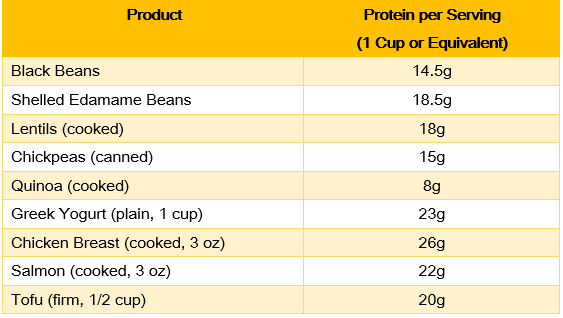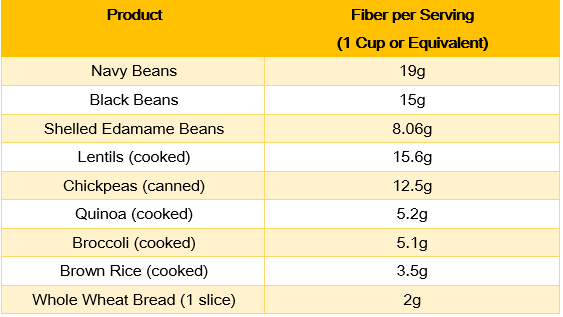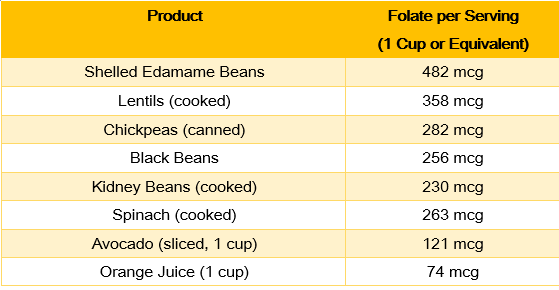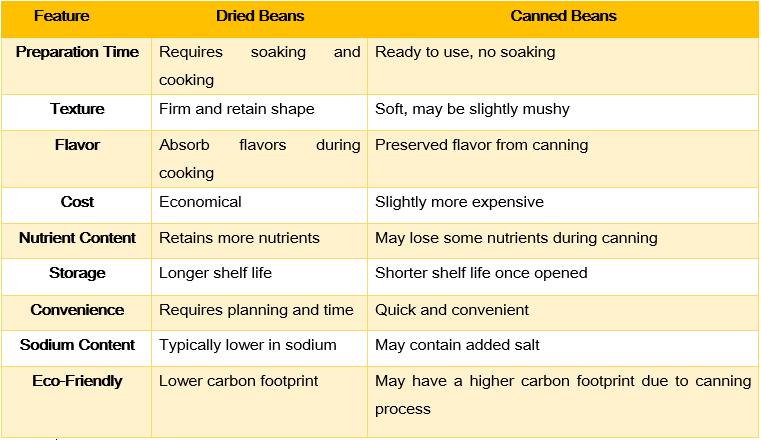Vegan Globetrotter is supported by our audience. When you purchase through one of our links, we may earn a small affiliate commission. As an Amazon Associate I earn from qualifying purchases. Your cost is not affected.
==================
“Uncover the Incredible health benefits of beans for a vibrant and nourished lifestyle.”
Beans are one of the most common and nature’s superfoods. They are stacked with essential vitamins, minerals, and phytochemicals. Thanks to their versatile nature and simplicity, beans are also a primary food source.
People worldwide love these plant seeds, as they are not just good for you – they taste great, too! In Asia, Europe, and the US, you will find different types of native beans, each with its unique species.

Health Benefits of Eating Beans / Flickr / Stephalicious
Moreover, their unique plant protein and dietary fiber mix makes beans even more awesome. According to the US Dry Beanc Council, beans are low in bad fat and have zero cholesterol. Beyond the health benefits of beans, these seeds are affordable, costing a few pennies per serving.
So, whether you are not a fan of beans or looking to explore more ways to enjoy their health benefits, here’s what you need to know!
The Basics of Beans
Beans are the seeds of flowering plants. As members of the legumes in the Fabaceae group, they come in various forms. While some varieties grow in pods, others thrive in capsules, developing from flowers.
Other varieties of legumes include peas, peanuts, and lentils. You can find frozen, dry, or canned beans thanks to their versatile nature.

Mixed Beans for Soup Recipes / Flickr / Sharon Lee
Nutritionally distinct from green or wax beans, where one consumes the entire pod, beans are rich in amino acids. These acids are the proteins our body needs to heal and make tissues like bone, muscle, hair, and skin.
As we have mentioned earlier, there are many types of beans. You can enjoy dried beans that you can cook to make them tender enough. In contrast, frozen and canned beans are usually ready to eat after you warm them on the stove or microwave.
Here are some of the most loved bean varieties:
- Soybeans
- Kidney beans
- Red beans
- Lima beans
- Pinto beans
- Black beans
- Black-eyed peas
- Garbanzo beans
- Navy beans
8 Health Benefits of Beans
Eating beans and legumes offers a myriad of health benefits, including:
Beans Provide Protein and Amino Acids

Protein Content in Beans
One of the significant benefits of eating beans is the supply of protein. Protein is a critical nutrient for our body to maintain and repair tissues. It relies on amino acids as its building blocks. Beans, rich in protein and amino acids, help you boost your protein intake.
Studies show there are 20 amino acids, with nine classified as essential. Protein sources have two categories: complete and incomplete.
Complete proteins in animal products and soy and quinoa have all nine amino acids. Soybeans stand out as the only bean variety encompassing all nine.
In contrast, incomplete proteins mean missing some essential amino acids. Examples of incomplete proteins include vegetables, nuts and seeds, and whole grains.
Thus, if you rely on incomplete protein, combine your food with nuts, seeds, dairy, or grains. You can complete your protein profile in a single meal or throughout the day. For example, you can enjoy beans with rice or couscous or pair black beans with almonds or cheese.
Moreover, beans are also an excellent protein source for vegetarians and vegans. As an alternative to meat and dairy options, you can eat beans to boost your lower calorie and saturated fat levels.
Lots of Fiber to Prevent Heart Disease

Fiber Content in Beans
Heart disease is a severe health concern and a leading cause of death worldwide. One of the health benefits of beans is that they lower the risk of heart disease.
Beans, crowned for their soluble fiber content, stand out as a top-notch source. According to the National Lipid Association (NLA), eating beans can help lower cholesterol levels.
In addition to fiber, these tiny powerhouses are rich in potassium. It is a crucial mineral that regulates blood pressure, an aspect often ignored in our diets.
Moreover, beans donate to our daily fiber intake beyond cholesterol and blood pressure. For example, navy beans boast an impressive 19 grams of fiber per cup. It is worth noting that most Americans lack the recommended 25 to 38 gms of daily fiber.
Fiber boosts regularity and lowers the risk of heart disease, blood cholesterol, blood pressure, and digestive issues.
Thus, incorporate beans into a hearty soup with smoked turkey, carrots, kale, and onions for a delicious and heart-healthy meal.
A Lot of Folate

Folate Content in Beans
Beans like shelled edamame are more than just tasty. They are loaded with essential nutrients, including folate. Folate is necessary for our overall health. It helps make healthy red blood cells and helps avoid neural tube defects in developing fetuses during pregnancy.
For example, a 1-cup serving of shelled edamame (155 gms) gives you a hefty 482 micrograms (mcg) of folate. Now, that is like a potent dose of goodness for your body!
So, munching on beans is more than just enjoying a delicious snack. It is like you are giving your body a boost of what it needs to stay healthy.
Helps You Maintain A Healthy Weight
With their potent mix of protein and fiber, beans bring a lot to the table. It is especially true if you are struggling to maintain a healthy weight.
Regularly eating beans can help with weight loss. It might lead to a lighter body, a slim waist, and a lower body mass index (BMI).
Moreover, some research shows that people aiming to shed pounds did better on a protein-rich diet, and beans topped the list. As your main course, consider swapping out meat for a delicious, low-fat, and spicy kidney bean chili. It is a tasty way to enjoy the health benefits of beans and support your weight goals.
Beans have Antioxidants to Fight Free Radicals.
Beans provide more than just great taste. Thanks to their rich polyphenol content, they pack a punch against free radicals.
Polyphenols are antioxidants that combat the harmful effects of free radicals. But what are free radicals? These are nasty chemicals the body produces during metabolism and other processes.
Free radicals can wreak havoc, causing cell damage linked to various diseases. Adequate intake of antioxidants helps our body to clear out these culprits. Beans, being antioxidant-rich, stand as defenders, protecting our bodies from potential diseases.
So, add more beans to your plate and enjoy a delicious meal that gives your body a potent ally in the fight against harmful free radicals.
Eating Beans Lowers the Risk of Cancer
One of the health benefits of beans is that they are a rich source of phytonutrients. These are the substances that reduce the risk of certain cancers like breast, colon, stomach, kidney, and prostate cancers.
Bean intake has been linked to a decreased risk of various cancers in human and animal studies. Some studies show that bean-containing diets can help lower the risk of cancer.
Moreover, the dietary fiber in beans, in particular, helps lower the risk of colorectal cancer. Beans have bioactive compounds like flavonoids, tannins, and antioxidants. These compounds may also act to decrease the risk of other chronic diseases.
Diabetes and Glucose Metabolism
Beans may also help manage blood glucose levels and prevent diabetes. Their dietary fiber content stabilizes blood glucose, making them a good choice for those with diabetes.
Some studies show that a high-fiber diet, like the one found in beans, could lower the risk of type 2 diabetes. In addition, the study further hints that beans can help reduce blood sugar in those who already have diabetes.
Moreover, another study was conducted to find the positive impact of beans on type 2 diabetes. It showed that people who added a cup of legumes to their daily meals had lower blood pressure levels compared to those consuming whole wheat fiber.
Thus, including beans in your diet is a straightforward yet effective way to support your overall health. This is particularly true if you struggle to manage high blood sugar.
Beans Have Fiber to Support Gut Health
The benefits of eating beans also include improved gut health. Your gut has colonies of good and bad bacteria. Good bacteria protect us from disease, whereas harmful bacteria can cause type 2 diabetes, heart issues, and more.
However, these good bacteria need fiber as their fuel to stay strong and outnumber the harmful bacteria. Good bacteria break down fiber to create short-chain fatty acids. These fatty acids help reduce inflammation and boost immunity. It means fiber in beans can help you prevent the onset of disease.
While all beans and legumes are beneficial, black beans, in particular, are perfect for gut health. So, adding beans to your meals is an excellent way to improve gut health.
Dry or Canned Beans: Which is Better?

A Comparison: Dried vs. Canned Beans
Beans are a must-have for vegans, whether black, kidney, white, navy, or sturdy chickpeas. The dilemma often comes down to choosing between canned and dried beans. Each has its pros and cons, so we are here to make it simple for you. Let’s weigh the options and determine which fits your lifestyle better.
Price: Canned vs Dry beans
If you are on a budget, choosing dried beans is usually more affordable than canned.
For instance, a 15-ounce Whole Foods 365 black bean can cost 99 cents. In contrast, a 16-ounce bag of the same beans costs $2.99. Even though the canned beans might seem cheaper, there’s more to it.
Canned beans are pre-cooked and packed in water, while dried beans are dehydrated and pre-cooked, so they weigh less. Once you soak or boil your dried beans, they gain weight. Ultimately, you get more from the bag of dried beans than a single can.
So, if you want more value for your money, choosing dried beans is the way to go.
Nutritional Value
In terms of nutrition, canned and cooked beans are almost similar. Both have the same value of protein, fat, and ingredients. However, watch out if you buy canned beans, usually packed in salty water.
Moreover, nutrition experts say canned beans might have up to 100 times more sodium than cooked ones. Thus, drain and rinse them as this can cut the sodium by half, although it might wash away some nutrients.
This is why doctors often suggest canned beans without added salt if you like them more than dried ones. You can enjoy your beans without getting too much salt in the mix.
Cooking Convenience
When it comes to ease, canned beans win hands down. They are already soaked and ready to eat, while dried beans might need an overnight soak and hours of cooking. You can make a whole bag and freeze the extras, but canned beans are way more convenient for time and space.
So, what’s the best choice? It depends on your priorities. Dried beans are better for cost, nutrition, and the environment, but canned beans are the way to go if you want a quick fix.
Video Credit: Plant Based Science London
Creative Ways to Add More Beans to Your Diet
Seeing the incredible health benefits of beans, you might wonder how to add more beans to your diet!
Adding more beans to your diet is a simple and tasty way to boost nutrition. Here are some easy tips:
Start with your Go-To Dishes
Spruce up your go-to recipes by tossing beans into soups, stews, salads, and wraps. Thanks to their versatile nature, they blend well and elevate the flavors. It is also an intelligent way to add a nutritional punch to your favorite dishes.
Snack on Hummus
Enjoy a tasty and healthy snack with hummus and a yummy chickpea dip. Dip your veggies or whole-grain crackers, or spread it on sandwiches for a delicious twist. It is an easy way to make your snacks more exciting for you.
Blend into Smoothies
Take your morning smoothie game to a new level by tossing in a handful of cooked white beans or chickpeas. It makes the smoothie creamy and adds more protein and fiber, making it a healthy and lovely treat.
Beans’ mild flavor mixes well with your favorite fruits, creating a nutritious drink to start your day. Try this easy trick for a tasty twist to your daily smoothie routine.
Enjoy Homemade Bean Burgers
Make your veggie burgers at home using black beans, chickpeas, or lentils. These homemade delights are a delicious swap for meat. Just mash up the beans, add some tasty spices, shape them into patties, and cook.
You will have a flavorful and satisfying burger that’s good for you and friendly to the planet. Try making a bunch and freeze it for later – a quick and easy meal anytime you want a tasty, plant-powered treat!
Top Your Salads
Elevate your salads by sprinkling black beans, kidney beans, or chickpeas on top. These beans enhance the flavor and provide a hearty dose of protein.
The mix of crisp greens and the wholesome goodness of beans creates a nutritious and yummy meal. Whether crafting a hearty dinner salad or a quick lunch bowl, adding beans provides a delicious and filling element.
Enjoy a nutrient-packed salad that keeps you energized and satisfied throughout the day. It’s a simple yet effective way to make your salads more nutritious and delightful.
Try Ethnic Cuisines
Let your taste buds go on a trip worldwide with bean-based dishes from different cultures. Enjoy the zing of Mexican black bean bowls, the spice of Indian lentil curry, or the freshness of Mediterranean chickpea salads.
These flavorful meals bring joy to your palate and pack a punch of nutrients. It is a tasty adventure that introduces beans into your meals in a fun and easy way.

Baked Beans / Flickr / Andrew Dies
Explore Beanful Baking
Have some baking fun by tossing beans into your brownies, muffins, or cookies. It adds moisture and boosts the goodness in your treats. Beans blend well, creating a soft and tasty texture while sneaking in extra nutrition.
Adding beans makes it easy to create delicious and healthy baked goodies, whether chewy brownies or fluffy muffins.
Try it out for a delightful twist to your favorite sweets, turning your baking time into a bean-filled, easy, and tasty adventure!
Remember to start slowly to give your digestive system time to adapt to the higher fiber. With these creative ideas, you will enjoy the benefits of eating beans.
Wrapping Up
That is all about the incredible health benefits of beans. These tiny wonders pack a punch in the health department. From being protein and fiber champions to supporting heart health and helping with weight management, beans are a true nutritional powerhouse.
Moreover, their versatility in the kitchen adds a delicious touch to any meal. So, whether enjoying a soothing bowl of lentil soup or tossing chickpeas into your salad, you are giving your body a wealth of nutrients.
Let’s simplify our approach to nutrition and celebrate the goodness of beans. These tiny treasures contribute so much to our well-being. Make beans a staple in your diet, and revel in the simplicity and health benefits they bring to your table. Cheers to a healthier, happier you, one bean at a time!
FAQs
What is another name for pinto beans?
Pinto beans are sometimes called “painted beans” because of their speckled look. These beans, with their beige color and reddish-brown spots, are common. They are famous for being tasty and creamy, ideal for soups and Mexican treats like refried beans.
So, whether you say painted or pinto beans, they are a yummy and nutritious choice for cooking. Add them to your meals, and enjoy the deliciousness they bring to your favorite recipes.
What are the health perks of navy beans?
Navy beans, those little white wonders, have many health benefits. First, they are a perfect source of plant-based protein, helping muscles stay strong. With loads of fiber, they keep tummies happy and aid in digestion. In addition, navy beans are a nutrient treasure chest, offering vitamins and minerals. They have iron and B vitamins for energy boost.
Moreover, thanks to their low-fat content, navy beans support heart health. They are cholesterol-free, making them heart-friendly. And guess what? They’re super affordable! Whether tossed into salads or soups or enjoyed as a side dish, navy beans offer a tasty and nutritious way to fuel your body.
What are the properties of beans?
Beans come with fantastic properties. They are bursting with plant-based protein, making muscles strong. These tiny seeds also contain fiber for happy tummies and smooth digestion. They are a nutritional powerhouse filled with vital vitamins and minerals like iron and B. Low in fat, they are heart-friendly and cholesterol-free, supporting heart health. Plus, they’re budget-friendly.
Are there any downsides to eating beans?
While beans provide many health benefits, they can be a few downsides for some people. For example, they have compounds like lectins and phytates. These compounds might affect nutrient absorption and cause tummy troubles in some folks.
Moreover, the natural sugars in beans can lead to gas and bloating, mainly if you are not used to lots of fiber. However, don’t fret! Soaking beans before cooking and adding them gradually into your diet can help ease these issues. If you have specific health issues, chat with your doctor to find the best way to enjoy more beans.
Welcome to Vegan Globetrotter – Your Passport to Tasty, Easy, and Global Plant-Based Living!
Explore a variety of delicious vegan recipes from around the world, making your journey to a cruelty-free lifestyle fun and flavorful.
Stay in the loop with the latest plant-based trends and lifestyle tips – we have all the necessary information!
Join our community of food enthusiasts, sharing the love for tasty, planet-friendly choices.
Whether you are a seasoned vegan or starting your journey, Vegan Globetrotter is here to inspire your daily meals. Follow us on Facebook, Insta, Pinterest, Youtube, and Twitter for a world of simple, delicious, and compassionate plant-based living!


Don't miss out
when new recipes and information are added!
Join our newsletter for free recipes,
healthy living inspiration, and special offers
You have Successfully Subscribed!